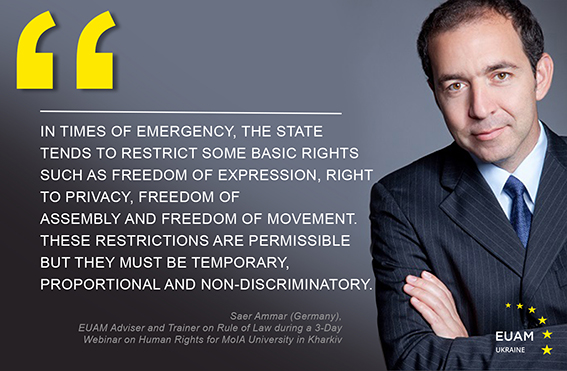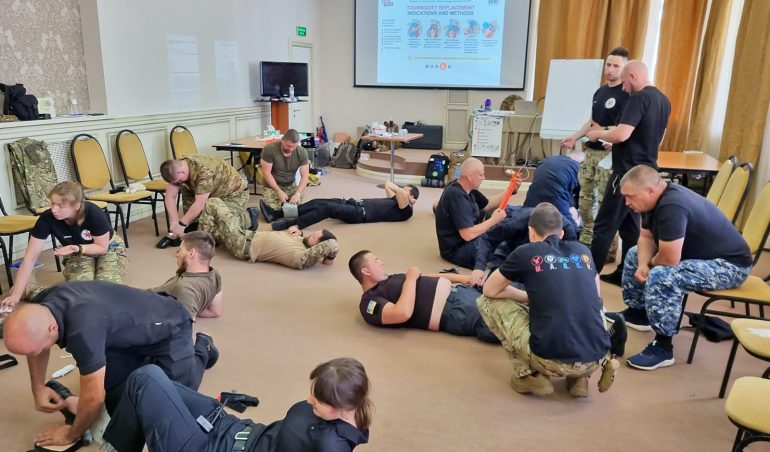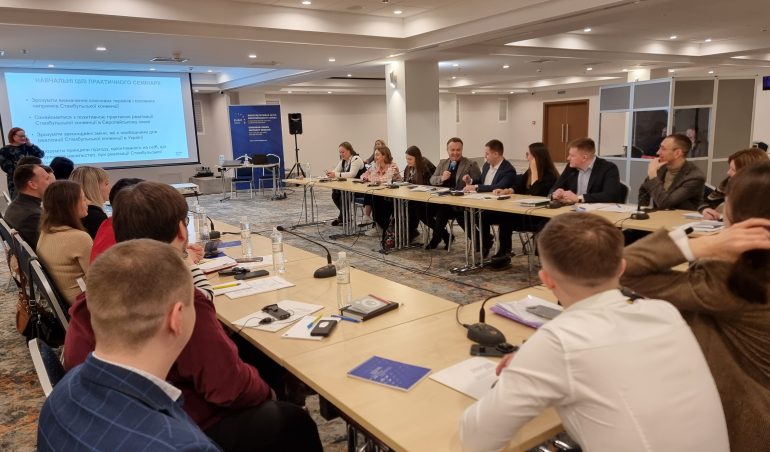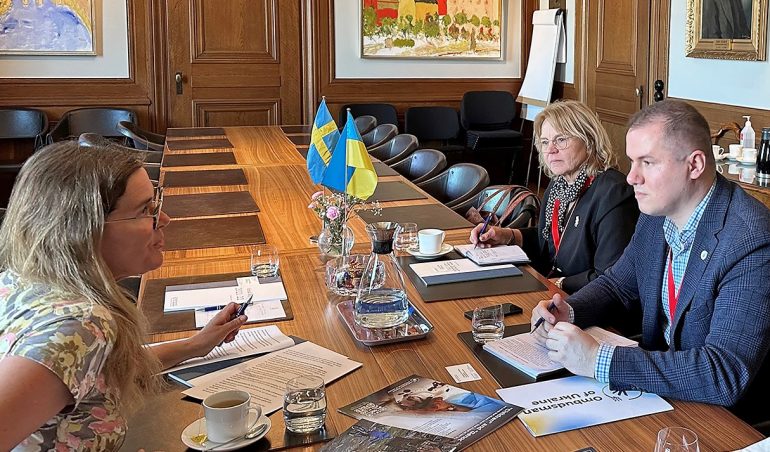In times of crisis, curbs on freedom ‘need to be temporary and proportional’
May 06, 2020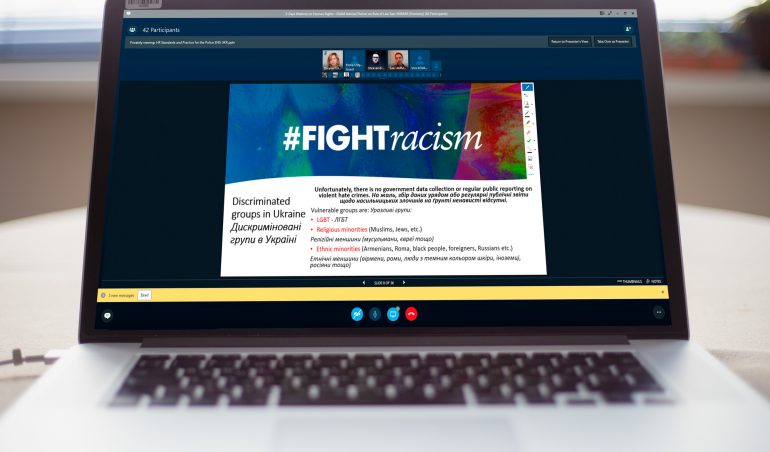
EUAM Advisor on Rule of Law at the mission’s Kharkiv Field Office, Saer Ammar, today completed a three-day online workshop on human rights in law enforcement. On the other side of the screen, more than 40 cadets and students from Kharkiv National University of Internal Affairs, and also from Sumy and Kremenchuk, had many questions to pose.
What are the human rights standards and practices for the Ukrainian police? How can police officers ensure in their daily work that these fundamental rights are respected? And what about human rights in times of crisis, like this COVID-19 pandemic Ukraine is facing nowadays?
Last week, Mr Ammar had already hosted a first teleconference with Kharkiv teachers and students to introduce the topic. A way for him to continue under the ongoing quarantine the workshops he used to facilitate in person at the university. “In times of emergency (e.g. pandemic, natural catastrophe, war), the State tends to restrict some basic rights such as freedom of expression, right to privacy, freedom of assembly or freedom of movement,” he explained. “These restrictions on human rights are permissible, but they must be temporary, proportional, and non-discriminatory. For example, travel bans and restrictions on freedom of movement may not be discriminatory, they need to be temporary and proportional”.

Since Ukraine has signed and ratified many human rights conventions such as the European Convention on Human Rights (ECHR), all Ukrainian law enforcement officials and police officers are obliged to promoting and protecting human rights — in their external actions but also internally. That is why all police officers are asked to familiarize themselves with human rights principles at every step of their work: during investigation (presumption of innocence), arrest (procedures as established by law), detention (limit pre-trial detention) and of course in the use of force and fire-arms.
Any violation can be addressed in the end to the European Court in Strasbourg, France, especially with some cases that cannot be compromised under any circumstances. “Even in times of emergency, there are some rights of huge importance that the State is not allowed to restrict or derogate,” underlined Mr Ammar. “They are the right to life, the right to be free from torture and other inhumane or degrading treatment or punishment, and the right to be free from slavery or servitude. These are absolute rights.”
